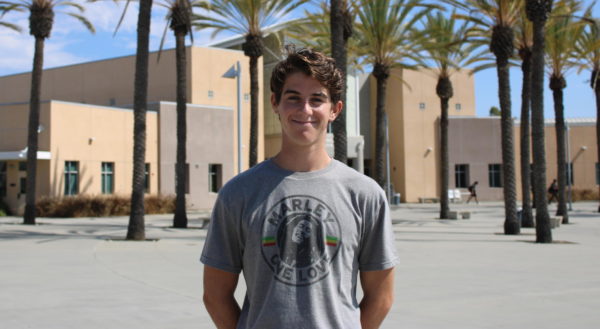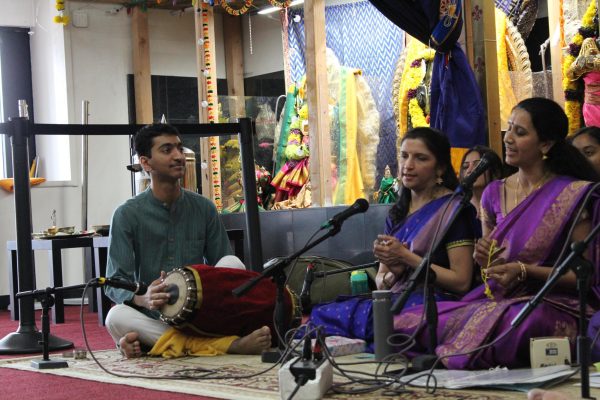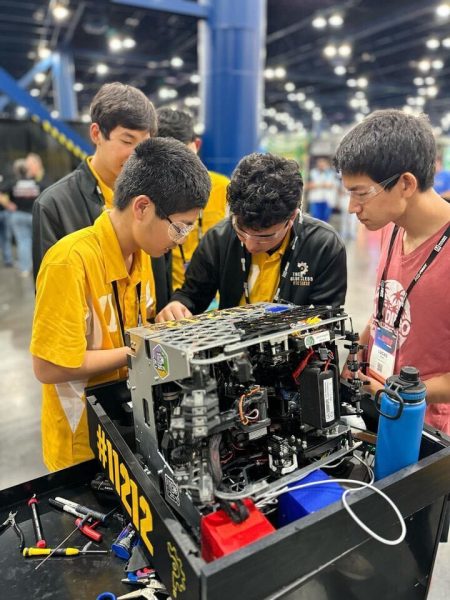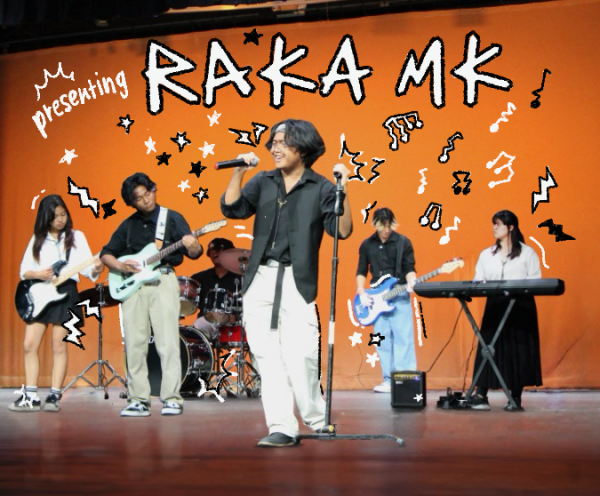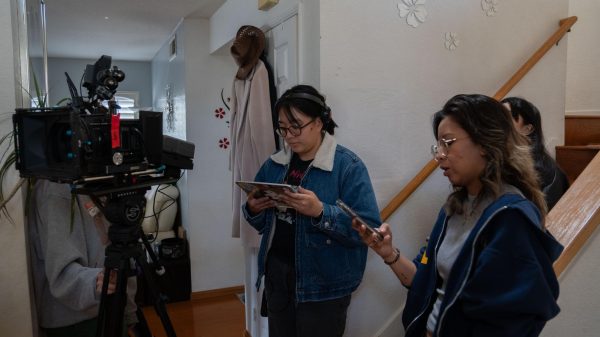Brahmbhatt spreads epilepsy awareness
April 7, 2023
During an eighth-grade history test, Mika Brahmbhatt (12) experienced short lapses in consciousness. Not knowing what was happening, she continued to take her test. Eventually, her teacher saw her staring off into space, and became annoyed, assuming that she was cheating and looking at someone else’s paper.
“In the middle of the test, in front of the whole class, she said, ‘Mika, give me your paper; you’re done,” Brahmbhatt said. “Which was a very humiliating moment, especially for an insecure middle-schooler, because I didn’t know what had happened. There was no way for me to advocate for myself.”
Even simple tasks like having a conversation became difficult.
“When coming out of these lapses in consciousness, I would continue whatever I was doing right before,” Brahmbhatt said. “If I was having a conversation with someone, I would continue talking about what they might have said a few seconds ago.”
After the incident during the history test, her parents decided to take her to a . child neurologist, who ran an EEG to measure the electrical activity in her brain. It showed that she had hyperactivity in areas of the brain associated with absence epilepsy, or multiple mini-seizures that happen throughout the day.
Brahmbhatt would have up to 100 of these mini-seizures daily. These seizures would happen at all parts of her day, making life in general incredibly difficult.
As a middle-schooler with low self-confidence, Brahmbhatt said that this was a huge blow to her feelings of needing to fit in.
“Middle school was a tough time, because I didn’t even know I had epilepsy or what was going on,” Brahmbhatt said. “As a middle-schooler, nobody wants to be different, so it was hard learning how to cope with epilepsy and learning to vouch for myself.”
To try to counteract the numerous seizures Brahmbhatt was having, she was put on the medication Zonisamide shortly after the incident with the test. This medication, however, only made the problem worse.
“I lost 10 pounds in about two weeks, and I was sleeping a lot of the time, but not feeling very rested,” Brahmbhatt said. “Tiredness for me is a big trigger, so even though I wasn’t having big seizures, because of the sleep deprivation, I ended up having a really big one around Christmas Time of eighth grade.”
When her parents walked downstairs during that night to check on her, they discovered her convulsing on the floor in a tonic-clonic seizure. When someone experiences these, it is best to not intervene with any C.P.R., because it could block their airways. Brahmbhatt’s parents, for her own safety, had to watch Brahmbhatt convulse and foam at the mouth for five minutes.
The medication Depakote helped to eliminate Brahmbhatt’s seizures, a sharp contrast to her bad experiences with Zonisamide.
Brahmbhatt wanted to help others who were struggling with Epilepsy. So in ninth grade, she started working with the San Diego Epilepsy Foundation to provide audio recordings of her struggles with epilepsy to different schools throughout PUSD.
“The recordings from the San Diego Epilepsy Foundation provide education about epilepsy,” Brahmbaut said. “I share my story, to provide a personal anecdote that is more relatable than educational information.”
To further understand her epilepsy, Brahmbatt had to learn more about how her brain works. This latent interest is what , which prompted Brahmbhatt to major in neuroscience at [college] this fall.
Brahmbhatt has grown to appreciate the opportunities for personal growth that epilepsy has given her.
“I definitely don’t feel ashamed about it,” she said. “I think more than anything, I’m really grateful to have gone through the experience of having it because it’s opened up opportunities for me to help other people. Understanding this diagnosis has helped me to understand myself. I think that understanding that it’s a part of me has helped me to take into the mind the people I want to associate myself with. Are they going to be people who, after hearing about my diagnosis, say ‘It’s not that important. It’s not like it’s cancer.’? Rather, I want to be around people who are accepting and supportive of my diagnosis, learning about it alongside me, whom I am very thankful for supporting me.”


